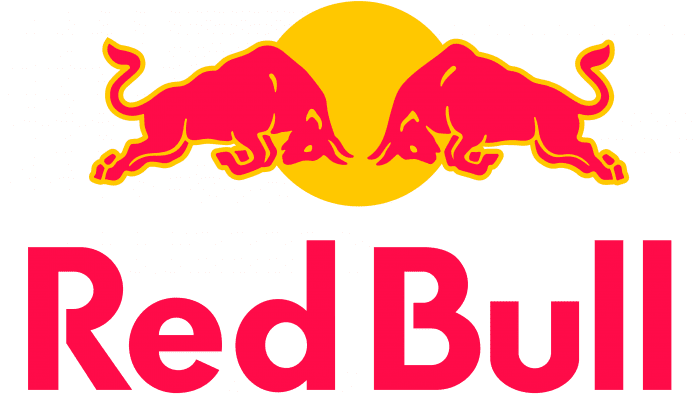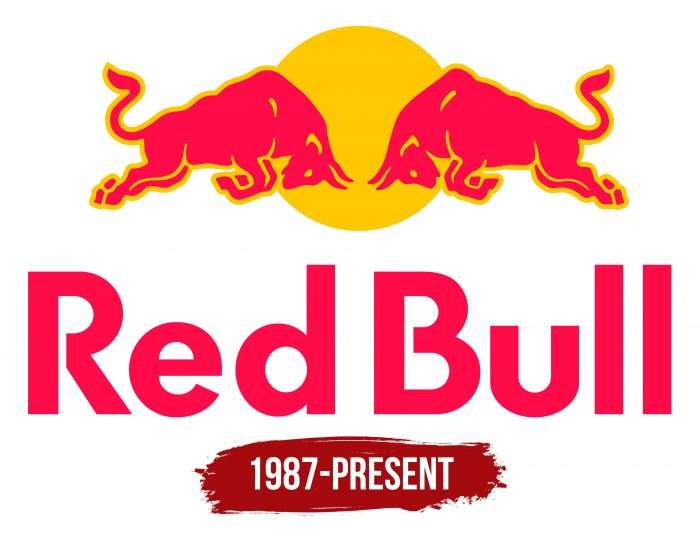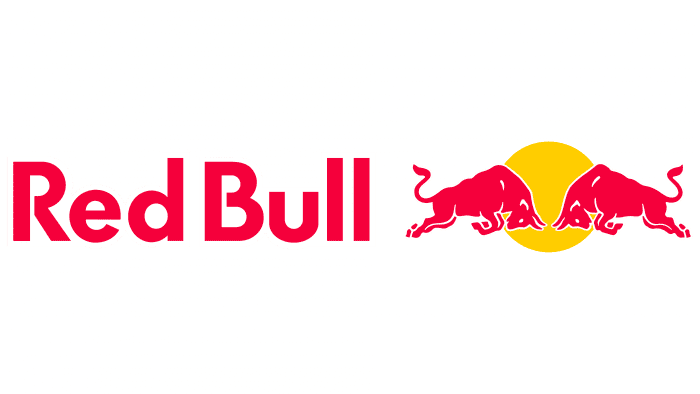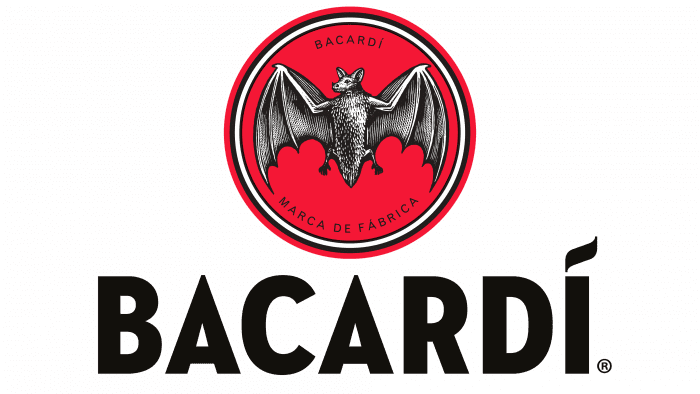Strength, energy, and fighting spirit can all be seen in the Red Bull logo. The drink fights fatigue and sleepiness, helping you stay as alert as midday. The mark promises the ability to get important things done as long as the formula lasts.
Red Bull: Brand overview
Red Bull is an Austrian energy drink brand that was established in 1987. It is owned by Red Bull GmbH, which was founded in 1984. However, its story began even earlier, in 1982, when Dietrich Mateschitz, during one of his business trips to Thailand, found an excellent invigorator – Krating Daeng. Teaming up with inventor Chaleo Yoovidhya, they came up with a modified recipe for the product for Europeans.
Meaning and History
The Red Bull logo is used everywhere it can be: at sporting and esports events, during soccer matches, races, and even space projects. At the same time, it is associated with activity and dedication, reflecting the core values of the brand.
When coming up with the logo for his new brand, Dietrich Mateschitz decided not to remove the symbol of the original Krating Daeng. He also kept the name, simply translating it into English. In this way, the Red Bull image is almost a complete copy of the Krating Daeng brand identity.
What is Red Bull?
It is a caffeinated soft drink made with mountain water. It contains a large number of sweeteners, as well as flavorings, colorings, and other additives.
Red Bull: Interesting Facts
Red Bull, an energy drink from Austria, is famous for energizing people. Its motto is “Red Bull gives you wings.”
- Start: Dietrich Mateschitz, an Austrian, got the idea from Krating Daeng, a Thai energy drink, during a trip to Thailand. He partnered with Chaleo Yoovidhya, its creator, to make a fizzy version for the Western market, launching Red Bull in 1987.
- Taste: Red Bull was carbonated and tailored to suit Western palates, differing from Krating Daeng’s sweeter, non-fizzy taste, which helped it become a global hit.
- Worldwide Presence: Now sold in over 170 countries, Red Bull’s global success is due to its appealing marketing and sponsorship strategies.
- Sports and Culture: The brand sponsors extreme sports, e-sports, and cultural events. It supports athletes and teams in Formula 1, motocross, and more, promoting an adventurous, energetic image.
- Media House: Since 2007, Red Bull Media House has been creating sports, culture, and lifestyle content, broadening its influence beyond energy drinks.
- Unique Events: Red Bull hosts unique events like the Flugtag and Soapbox Race and notable feats like Felix Baumgartner’s record-breaking jump from the stratosphere in 2012.
- Product Range: Red Bull offers various flavors and options like sugar-free and zero-calorie options, catering to different tastes and diets.
- Eco-friendly Practices: The brand focuses on recycling and reducing its environmental impact, improving its cans’ recyclability, and participating in eco-initiatives.
- Supporting Innovation: Red Bull Basement encourages young innovators to create projects for social good, showing its commitment to creativity and change.
- Iconic Packaging: Red Bull’s recognizable slim, silver-and-blue can have become a significant part of its identity, largely unchanged.
Red Bull’s evolution from a simple idea to a worldwide phenomenon highlights its innovative marketing, commitment to sports and culture, and understanding of consumer needs, making it a dynamic force in and beyond the beverage industry.
Font and Colors
Since 1987, the mixture of taurine, caffeine, and sugar has been packaged in a blue and white can with a colorful logo. It depicts two bulls ready to clash horns against the backdrop of the sun. The idea is not new – the same picture is present on Krating Daeng labels.
Dietrich Mateschitz did not change the iconography, leaving all the design elements untouched. Perhaps he wanted the brand to be associated with something alien, exotic, coming straight from Thailand. This makes sense, considering that the owner of Red Bull borrowed the concept of a Thai energy drink.
The two red bulls pointing toward the center symbolize strength and energy. The large yellow circle in the background represents a solar disk. The animals convey balance: they oppose each other and, at the same time, complement each other, as the left side of the logo mirrors the right side.
The logo contains a graphic image with bulls and the inscription “Red Bull.” The name of the brand immediately catches the eye thanks to the large rounded letters. The designers used a customized sans-serif font. It has something in common with Futura SH-Dem Bold, Futura TS XBold, Avant Garde Gothic, and Futura BQ Demi Bold. The similarities are only remote, as the “R” in “Red” and the “B” in “Bull” have a unique writing style. For example, the “B” looks like a modified beta character.
The color palette is borrowed from Krating Daeng. It combines bright colors, which is characteristic of Thai culture. The bulls, as in the brand name, are red. They are surrounded by blurred yellow contours – the glare from the sun’s disk.
Red Bull color codes
| Rich Carmine | Hex color: | #db0a40 |
|---|---|---|
| RGB: | 219 10 64 | |
| CMYK: | 0 95 71 14 | |
| Pantone: | PMS 1788 C |
| Tangerine Yellow | Hex color: | #ffcc00 |
|---|---|---|
| RGB: | 255 204 0 | |
| CMYK: | 0 20 100 0 | |
| Pantone: | PMS 7549 C |
FAQ
What does the Red Bull logo represent?
Two red bulls pointing their horns against a yellow sun symbolize strength and energy. They link the modern Red Bull with its predecessor, the Thai energy drink brand Krating Daeng. It is from him that Red Bull took its logo.
What does the Bull logo mean?
The bulls in the logo symbolize strength, perseverance, power, energy, and physical activity.
Is Red Bull an Indian brand?
The Red Bull energy drink brand is owned by an Austrian company of the same name.
Which company has the Red Bull logo?
Krating Daeng company uses the Red Bull logo from Thailand. More precisely, it is Red Bull that uses its logo.





